Certified Ophthalmic Paramedic Program (COP)
The shortage of eye care technicians is a major obstacle in fighting blindness in low-income countries.
It’s an urgent problem, especially given that 90% of the world’s visually impaired people live in low- and middle-income countries.
That’s why Combat Blindness International provides training stipends for young women to become eye care technicians through the Certified Ophthalmic Paramedic (COP) Program at Dr. Shroff’s Charity Eye Hospital in Delhi, India.
These technicians fulfill a variety of roles, including ophthalmic nursing assistants, vision technicians, medical record administrators and patient counselors. By taking on these responsibilities, Certified Ophthalmic Paramedics reduce the strain on the ophthalmologists so they can focus on sight-restoring procedures and surgeries.
Through this innovative program, CBI empowers young women with skills, employment, independence, and confidence.
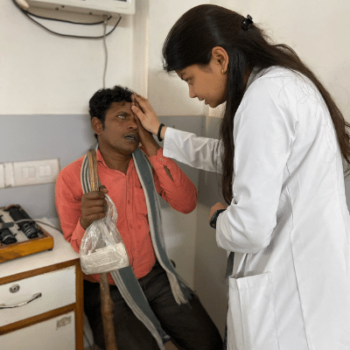

525+
Women Empowered Since 2014
The Aadya Initiative
In 2021, Combat Blindness International launched the Aadya Initiative — a pivotal blueprint for expanding eye care and reducing preventable vision loss in remote regions.
It is the product of our valued partnership with Dr. Shroff’s Charity Eye Hospital and University of Wisconsin-Whitewater Enactus, a global social entrepreneurship student group.
Aadya literally brings vision screening to the doorsteps of people who have little to no access to eye care.
The Aadya Initiative trains teams of women to become vision screeners, using mobile technology, including CBI’s custom-built smartphone screening survey.
Glasses are dispensed on the spot, and people who need follow-up care are referred to vision centers and eye hospitals. Meanwhile, the Aadya screeners earn an income through referrals and the sale of glasses.
The impact is significant:
- People in remote areas get much-needed screenings.
- More people are screened and get follow-up care in less time, compared to the traditional “vision camp” approach.
- Women with limited opportunities benefit from training, employment and an income.
Through this self-sustaining business model, Aadya promises to be globally scalable.
Ophthalmologist Fellowship Program
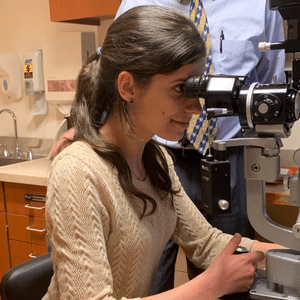
CBI works with partners in other countries to provide state-of-the-art training for ophthalmologists.
Through short-term fellowships and hands-on clinical and surgical training, we are building the skills and knowledge of the next generation of ophthalmologists so they may better care for their communities.
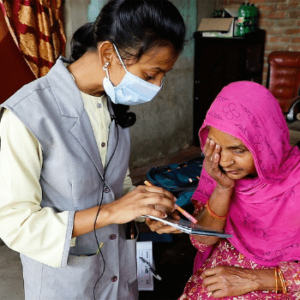
Shortage of Eye Care Professionals
There is a severe shortage of ophthalmic technicians in low-income regions. For example, South Asia there are 26 eye care professionals per million; in high-income countries, there are 95 per million.
Increasing eye care personnel is key to fighting preventable blindness.
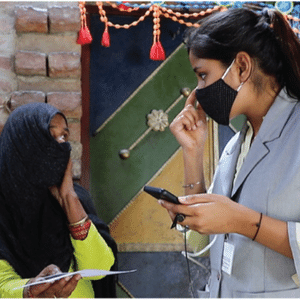
Expanding ‘Reach’ and ‘Scale’ of Eye Care
Through the Aadya Initiative, we are reaching the underserved where they live, making eye care more accessible to them.
We also are scaling up vision screening, dispensing glasses and follow-up care to cover larger geographic areas.
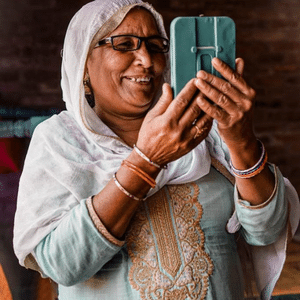
Equitable Access for Women
Globally, 55% of those with vision loss are women. In many countries, women face culture barriers to receiving the eye care they need.
Aadya Initiative screeners and COP technicians successfully remove these barriers when delivering eye care to women.

